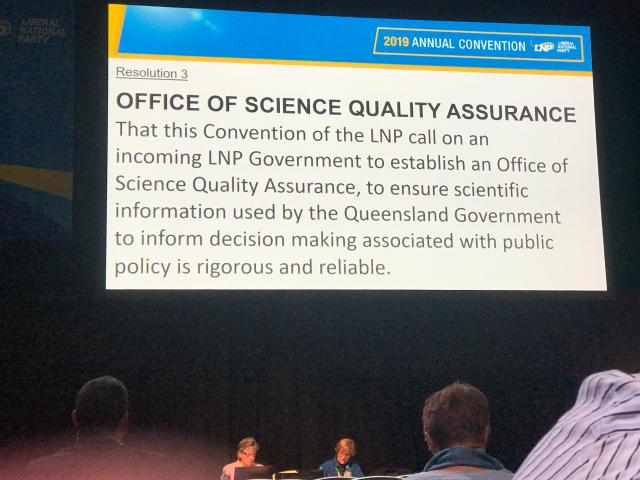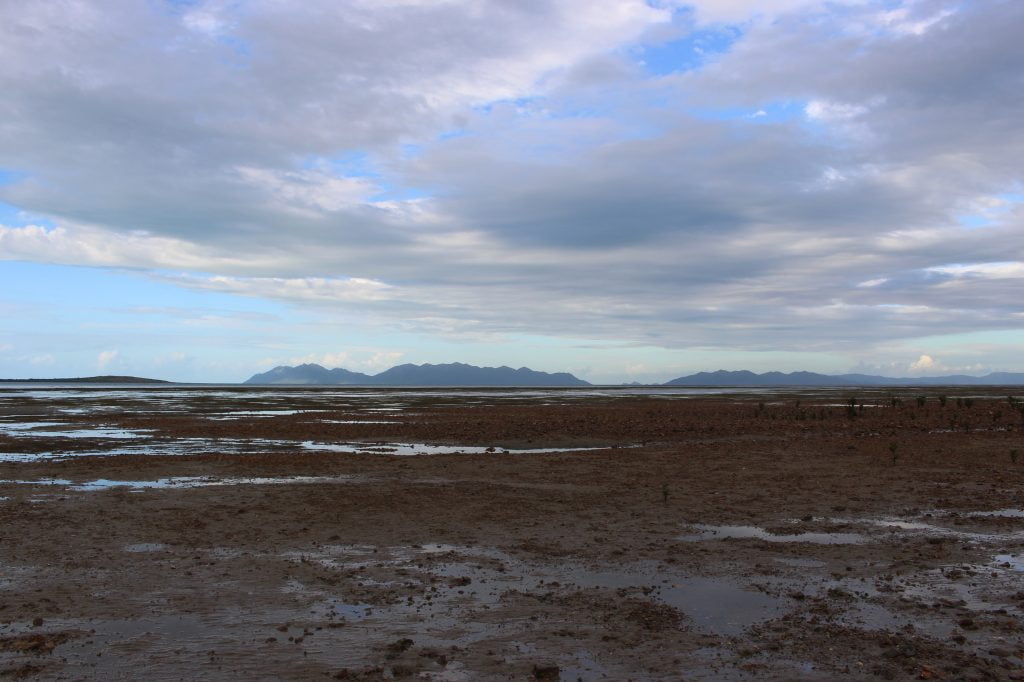THE idea that the Great Barrier Reef is in need of saving from catastrophe is popular, especially among academics and politicians. In 2003, I published an article in the IPA Review entitled ‘Deceit in the Name of Conservation’ concerning the then Queensland Premier and Chief Scientist. In an earlier article entitled ‘WWF says Jump, Governments ask How High’ I explained the extent to which there was collusion within members of a Reef Protection Taskforce, that including activists and the CSIRO, to the extent that they felt a need to invent evidence of damage to the reef — least none existed.
Former Prime Minister Malcolm Turnbull approved a $443 million grant to the tiny Great Barrier Reef Foundation. That grant includes an allowance of up to $86 million for ‘administration’.
Those with a belief in the general competence of government and academics might assume that there are some big questions reef scientists have prioritized and are in the process of answering through their reef research. But. It is perhaps more a case of individual researchers confirming the end is nigh in accordance with the consensus, while denying Nemo, his corals and the crystal-clear blue waters that is the reality at 319 percent of this deep nature … that is for those who still put their heads under the water without drowning from a ladder while entangled in a fishing net.
The Queensland Liberal National Party (LNP) passed a resolution at its conference on the weekend to establish an ‘Office of Science Quality Assurance’ to check the science that is being used for policy decisions — with the push for the creation of this office coming from those now very concerned about yet more regulation that could mean the end of the sugar industry as a proposed solution to saving the reef from ruin.

In bureaucratic speak such an ‘office’ could mean almost anything, but usually an ‘office’ is just a branch of a government department. Somewhat like a polp within a corallite that is anchored to the colony for better or worst as sea levels fall.

This ‘Office of Science Quality Assurance’ may pride itself on its independent advice. For example, Finance and Treasury sometimes give independent advice which may conflict with what the Cabinet and the Government wants to do. Such advice is usually ignored. This is the reason there are Cabinet-in-Confidence laws: to prevent publication of such internal discussions and possibly differing views.
There have already been commissions set up by government specifically to investigate corruption within institutions and organisations — even universities that undertake reef research in Queensland.
In facts claims of the need for quality assurance, could be a euphemism for ‘the scientists are taking the money and just making-stuff-up’.
Presently each Australian state has an anti-corruption commission. In Queensland there is the Crime and Corruption Commission (QCCC). The core function of this office is to investigate such allegations.
Indeed this branch of the Queensland government — with the grand title ‘Commission’—has far reaching powers to compel testimony and examine evidence. The QCCC actually receives thousands of complaints each year concerning misconduct by politicians, government officers even scientists — but finds time to investigate less than 5 percent of what is lodged by the tax-payers who funds this office/commission, as well as all the reef research.
The other 95 percent of the complaints lodged annually at the QCCC are referred straight back to the organisation against which the complaint has been lodged!
So, if you as a citizen of Queensland lodge a complaint against the Great Barrier Reef Marine Park Authority, for example, chances are that you will have your complaint investigated by — the Great Barrier Reef Marine Park Authority.
I know of a complaint of corrupt conduct lodged against a Queensland university (not James Cook University) by a former staff member in about 2016 that was immediately referred back to that same Queensland university. Despite all the evidence meticulously complied by the well-qualified former staff member concerning their misconduct, that university’s management determined that it simply did not have a case to answer.
Concerned that his detailed allegations had ended-up back with her university management that wouldn’t let him back on the ladder, the former staff member made a ‘Right to Information Request’ to the QCCC. He wanted to know how often this was the course of action, and how effective such an approach might be — essentially asking the vixens to inspect the chickens, dead and alive.
The QCCC responded that there was no relevant documentation at all. To be clear the Queensland Crime and Corruption Commission has never undertaken an assessment of the effectiveness of their complaints referral process. Yet this is where 95 percent. of the complaints from Queensland citizens reside.
This same commission, set up by government to provide some oversight of government, including government science at universities, has an annual budget of more than $60 million.
The Royal Commission into misconduct in the Banking, Superannuation and Financial Services found these non-government organisations also had oversight committees, and the committees were often aware of serious misconduct and possible criminal behaviour impacting on customers. Yet they mostly failed to do anything about it: they failed to properly self regulate.
Previously, the Royal Commission into Institutional Responses to Child Sexual Abuse in Australia uncovered that senior church officials were aware of sometimes hundreds of individual cases of abuse, yet their response though internal investigation was denial extending over the decades as victims suicided.
So, why would the LNP — currently the opposition government in Queensland — think that an ‘Office of Science Quality Assurance’ within a government department or other, will be able to make a difference to research research – or the plight of sugarcane growers who happen to farm next to the Great Barrier Reef?
Investigation into the veracity and quality of Great Barrier Reef scientific findings, is going to be infinitely more difficult than an investigation into a transaction between the Commonwealth Bank and yet another customer looking for some help with their superannuation.
Research institutions across Australia, including the Great Barrier Reef Marine Park Authority, the ARC Centre for Excellence and the Australian Institute of Marine Science are now as conformist and corporatist as banks — while almost totally dependent on government funding but under no obligation to archive their data.
The idea that these government-institutions run by bureaucrats (each on a ladder) will do anything except ensure such an ‘Office of Science Quality Assurance’ endorses the research that they manage, while squashing dissent, is so naive as to be dangerous.
The term Fourth Estate is sometimes used with reference to the mainstream media, suggesting they are as important as the three branches of government: legislative, executive and judicial for the correct functioning of a democracy. But we know they are as wedded to the idea the Great Barrier Reef is ruin, as Barrack Obama who, also, has never visited it.
There is a need for a revolution: for individuals within governments to become accountable again, for individual scientists to interest themselves in matters of truth, and for individual journalists to take an interest in their evidence.
Instead we increasingly persist in a society where legitimacy resides only with those embedded in such institutions that are increasingly conformist and corporatist — intent on limiting the potential of the individual particularly the individual who dissents. Through constant negotiations — mostly behind closed doors — the special interests of reef research charities and renewable energy advocates, alike, are growing.
Regulation and oversight of government by government does not work anymore — if it ever did.
The best response to the current corruption so obviously now embedded in Great Barrier Reef research would be for the LNP to pass a motion to severely restrict tax payer funding to those so animated by the prospect of reef ruin.
This could potentially limit the waste, and deceit — and who really would miss them? Only politicians who must save things, and journalists too lazy to find real stories — and to check if there really is coral beyond that mud flat to the immediate south of Bowen.
The corporatist culture that increasingly rules Queensland means an ‘Office of Science Quality Assurance’ within any branch of this state government, as proposed by the LNP on the weekend, will only inevitably end-up another brick in the wall against creativity, innovation and independent thought … all so important for the progress of science.
Indeed, all our science is primitive and childlike when measured against the reality of the resilience of the Great Barrier Reef — that has existed for 10,000 years despite floods, droughts and climate change.

***
The feature image is by The National Archives UK – Animal Farm artwork, No restrictions.


 Jennifer Marohasy BSc PhD is a critical thinker with expertise in the scientific method.
Jennifer Marohasy BSc PhD is a critical thinker with expertise in the scientific method.

I agree that the Queensland Crime and Corruption Commission system is a failure. In most cases, they just refer the corruption complaints back to the entity that is being accused of corruption, with no further oversight by the QCCC. QCCC only investigate a few cases such as the Ipswich council.
Its rather like having a criminal justice system where we get rid of the courts and juries. Instead, if there is a murder case, its just sent to the family of the accused to deal with as they wish.
Self regulation does not work for child abuse in churches, predatory practices by banks or corruption in universities.
Every time I hear the words ” climate emergency” as announced yesterday by another misguided shire council, I think :more virtue signalling misguided clowns. Pity the 2000 or so homeowners whose properties have just become virtually un-insurable and perhaps unsaleable. Sacrificed on the altar of politically correct, confirmation biased climate change religionists. Lord spare us !
Good article Jennifer.
Piers Corbyn said “Man made climate change does not exist”. Piers is a brother to the socialist ….. Jeremy Corbyn. UK Labour.
Dr Patrick Moore says “We need more CO2 not less. We could take CO2 up to 2000ppm and receive a benefit”.
Habibullo Abdussamatov said in 2010 “The next Ice Age starts in 2014”.
David Evans said “The next Ice Age starts in 2017”.
All these people are quite right.
I really don’t know where this can end. Those are not well known facts about the QCCC passing cases back to the culprits.
The percentage is scary.
I agree the percentage is scary. In the case involving a university, the complainant was told that there was nothing the QCCC would do other than pass back the corruption complaint, and if the complainant was not satisfied they could take the matter forward themselves through the court system. This would have potentially cost several hundred thousand dollars, as we have seen with recent cases in the Federal Court. Neither the QCCC nor the civil litigation system gives the average citizen any real way to have corruption in government or universities addressed.
Thanks to The Spectator Australia for republishing this article here: https://www.spectator.com.au/2019/07/how-will-more-pen-pushers-help-the-great-barrier-reef/
This coming Thursday/Friday July 18/19, the Federal Court will hand down penalties to JCU in the Peter Ridd case. Initially, the judge (Vasta) required JCU to reinstate Peter but quite predictably, JCU has refused to do that. So Judge Vasta now has the opportunity to express his thoughts on that refusal, backed by his legal authority.
It also appears that JCU will then have 3 weeks to lodge an appeal – an obvious tactic. Interesting developments.
Thanks to WUWT for republishing this article here: https://wattsupwiththat.com/2019/07/16/more-government-regulation-wont-save-the-great-barrier-reef-from-scientists-or-politicians-oink/
We must have one of the most suspect / corrupt governments on the planet in regards to government processing complaints against itself in an honest and transparent manner, because government in Australia is grossly guilty of protecting its own rump against complaints and actions by citizens. The public sector has largely isolated itself from democratic processes and accountability. No wonder there is no longer trust.
Making a complaint against government in Australia is like a Uighur in Xinjiang making a complaint addressed to President Xi, c/- The CCP. I was going to say, ‘but without the re-education camps’ ….. however, I guess that is the role the ABC national broadcaster is held responsible to perform on ‘climate panic’, and the Barrier Reef in particular.
@Richard Davies
> “The public sector has largely isolated itself from democratic processes and accountability”
Yes – at all 3 levels of government. The core of this is the inability to sack people in the public sector due to the outcry about “political interference”. Egregious incompetence is simply shuffled away from, albeit the individual concerned may not have good promotion prospects.
My understanding and experience of the operation of QA standards seems to be quite different to the those described in this post.
While government authorities are known for being the driving force behind setting up quality standards, they tend not to be long term operators of the systems.
Once the standard has subscribers and an income stream, it becomes a commercial. It is formed into a company a sold off to the private sector. Profit from sale goes to the government that set it up.
The standards company then licenses the operation of the standard to Branded QA companies that provide Auditing, Certification and training functions on fee per service basis.
At this stage the standard is a fully national standard.
When the standard is adopted internationally, an international standards organisation will become involved. National QA bodies will affiliate with the international body, ( not the UN) and an international standard will evolve.
In this model there is virtually no place for government based intervention and no possibility of any organisation auditing themselves.
Hope this is helpful
Best
Hi Anthony,
Thanks for your contribution, for broadening the discussion.
I have hoped that the current subjective method of temperature ‘homogenisation’ be moved to such an internationally based QA system, as detailed in my Rutherglen report: http://climatelab.com.au/10-22221/nc-2016-001/
As regards QA of reef research, where would the commercial incentive be … given it is all government research and there is no obvious/immediate/measurable human impact?
Then again, the tourism industry is most obviously impacted by the fake news. Why don’t they become more actively involved in ensuring some QA along the lines of what you suggest?
If today’s Australian report (July 19th) can be trusted, the Peter Ridd case in court yesterday for the penalties hearing against JCU contains a twist I had not seen before.
Although I had suggested it as likely, Peter is not asking for reinstatement (the work environment would be toxic) but rather compensation for damaged reputation based on unfair dismissal. So reinstatement was never an objective ?
I’m afraid that, for me, this is likely End of Story. Unless the newspaper report has it wrong.
Hi Jennifer,
I think a QA system needs to be seen as applying to an entire industry sector, not just specific elements of the sector. And you are right, the incentive must be financial.
Scientific research is mostly financed via grant committe type organisations. Governments are the source of finance for these committees. Governments need only stipulate that universities, research organisations (including CSIRO), university faculties, departments, schools and their researchers need to be compliant with a given standard, by a given date. The level of the standard and date of implementation might be variable across the sector as the standard is phased in.
After the implementation date, individuals and organisations that are non compliant simply become ineligible to apply for grants, or the value of the grant they may receive could dramatically reduce over time. This would be a powerful incentive to comply.
Grants committees would simply be stripped of the authority to make grants to the non compliant.
University administrators would soon realise that their income streams are drying up. They would then require the people they administer to achieve compliance or they would employ people who can work within the QA system.
Systems like this start slowly. Developing a standard, training people to operate the system, certifying organisations and training their staff all take time. But once it is all in place it becomes the driving force for change.
The only organisations in the system that would operate on a commercial basis are the standard owing company and the branded standard operating companies that certify, train and audit.
All entities subject to the QA system would be audited at least annually. Failing to achieve annual certification simply results in a higher level of auditing.
Hopefully this addresses the issue that you raised.
Best.
Not the End of Story, it seems, if the Morrison Govt actually does what its’ Party Room suggested yesterday Tuesday July 23rd.
The suggestion is that the Govt may help Peter Ridd to cope with the labyrinthine appeal procedures. I hope so. This is quite encouraging.
I note that the ALP is sour on this idea – I suspect the main reason for this is the distinct possibility that one of the outcomes will be a public discussion of actual empirical evidence. Quelle horreur … another shoddy, emotionally blackmailing policy shot down.